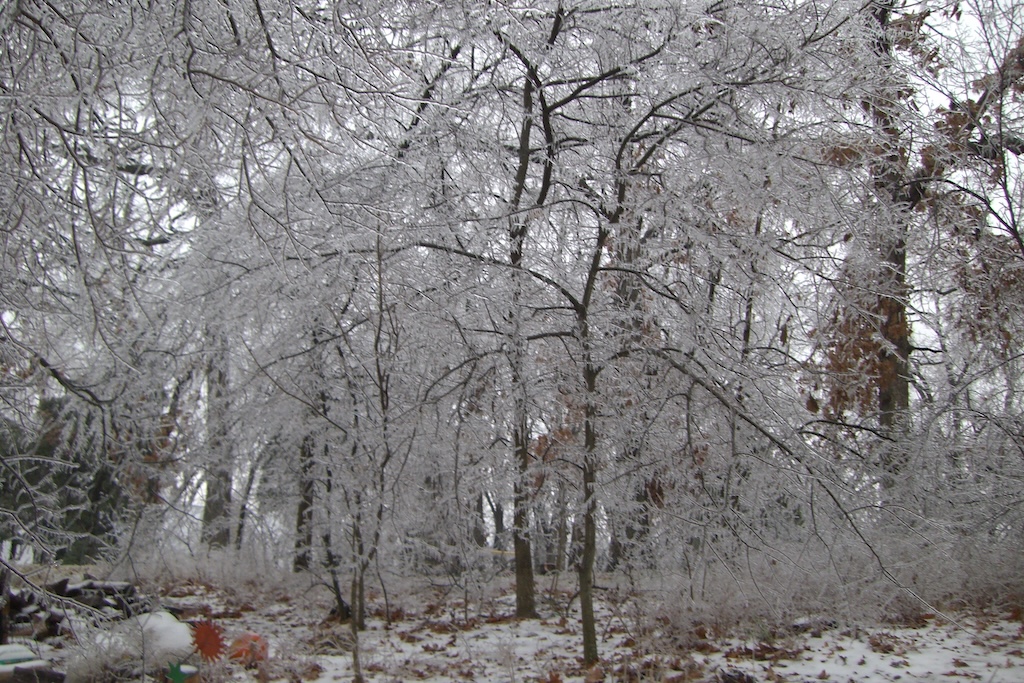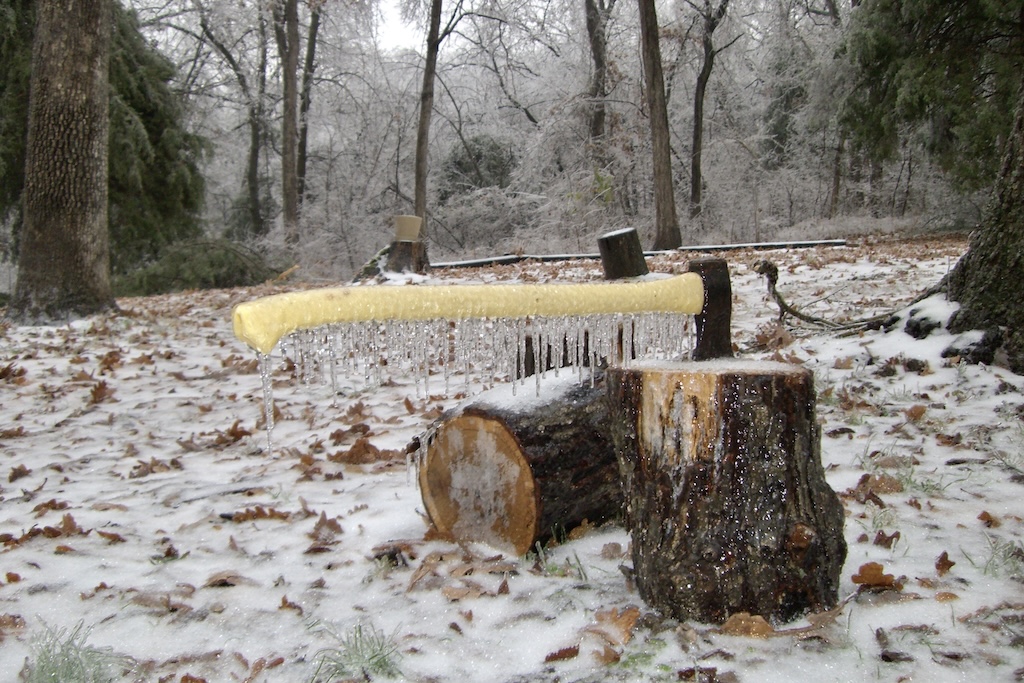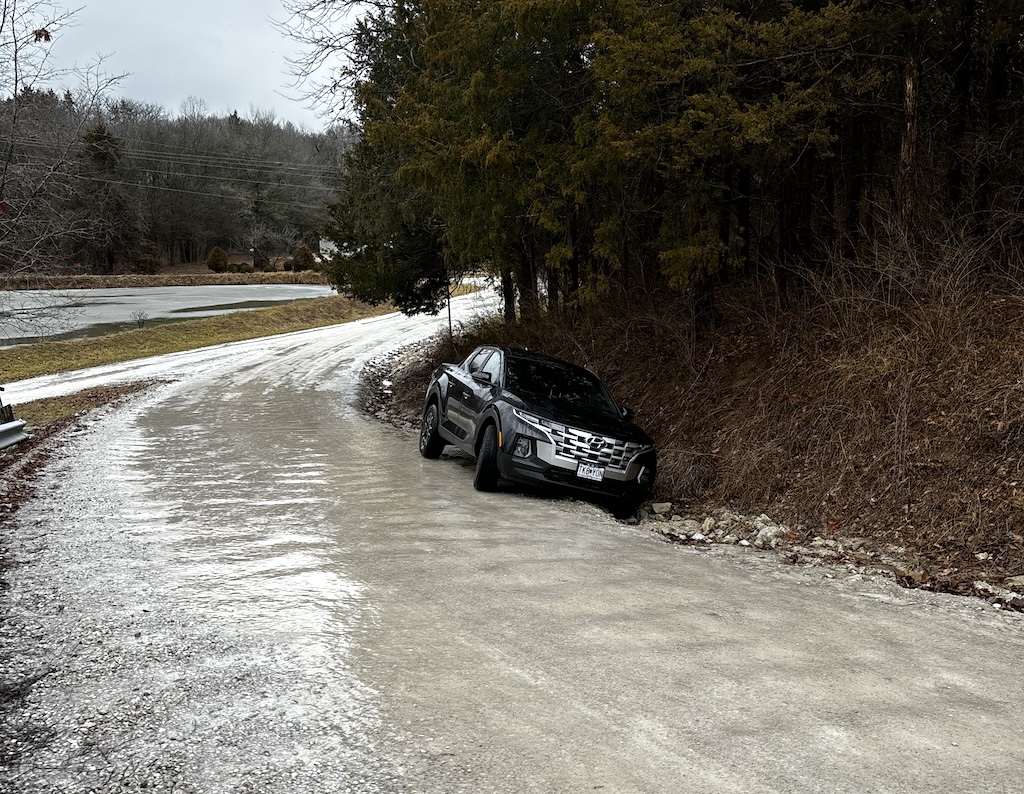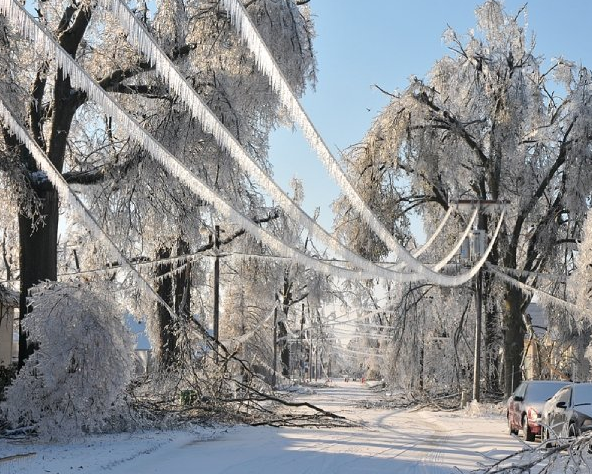

The ice storm that hit mid-Missouri last night knocked out our power about 10 o’clock this Sunday morning and it didn’t come back on until after 6:00 p.m. We spent the day camped in front of the fire place.
Any information about the extent of the power outage or when juice (and access to the net) might be restored was going to have to come from one of our area radio stations. I’m sure that if I could stand to listen to the Rams broadcast (local AM) or an opera (NPR) long enough, I’d hear something about our situation.
But Google has conditioned me to expect (and demand) instant access to the information I need. Yes, I understand that the radio station has to serve the needs and interests of all of their listeners. Some want music (maybe), some want sports, some want news and weather. So everyone has to wait patiently and trust the radio programmers to dole out info and entertainment, like UN aid workers tossing bags of rice to screaming refugees.
So there we sat in our chilly, dark living room, unable to tap into the Great and Powerful Internet. My only source for information –had I the patience to wait for it– was the local radio station. And it’s not fair to second-guess the local radio guys. I don’t know what was happening at the station. But they were reporting 17,000 people in and around Jefferson City without power. I think I might have gone wall-to-wall with updates.
So, does this situation make me value my local radio station any more than I did before the lights went out? Or has on-demand access to… everything, raised my expectations to a new level that will be difficult or impossible for terrestrial radio to every reach again?
 Regular readers know we live at the top of a pretty steep hill, at the end of a gravel road. This week’s weather left our hill slipperier than I’ve ever seen it. Nobody was getting up or down. The truck above belongs to a man who delivers part-time for Amazon and he was trying to bring a package to us. Dude, we can wait.
Regular readers know we live at the top of a pretty steep hill, at the end of a gravel road. This week’s weather left our hill slipperier than I’ve ever seen it. Nobody was getting up or down. The truck above belongs to a man who delivers part-time for Amazon and he was trying to bring a package to us. Dude, we can wait.
 Photo above –taken by Matthew Howard– shows why many homes in southeast Missouri are still without power. Matthew managed to get some photos on his Facebook page and give me permission to share a few here. I don’t think I’ve ever seen a utility pole snapped in two. Or this much ice damage to trees. And this close-up sort of tells the story.
Photo above –taken by Matthew Howard– shows why many homes in southeast Missouri are still without power. Matthew managed to get some photos on his Facebook page and give me permission to share a few here. I don’t think I’ve ever seen a utility pole snapped in two. Or this much ice damage to trees. And this close-up sort of tells the story.


